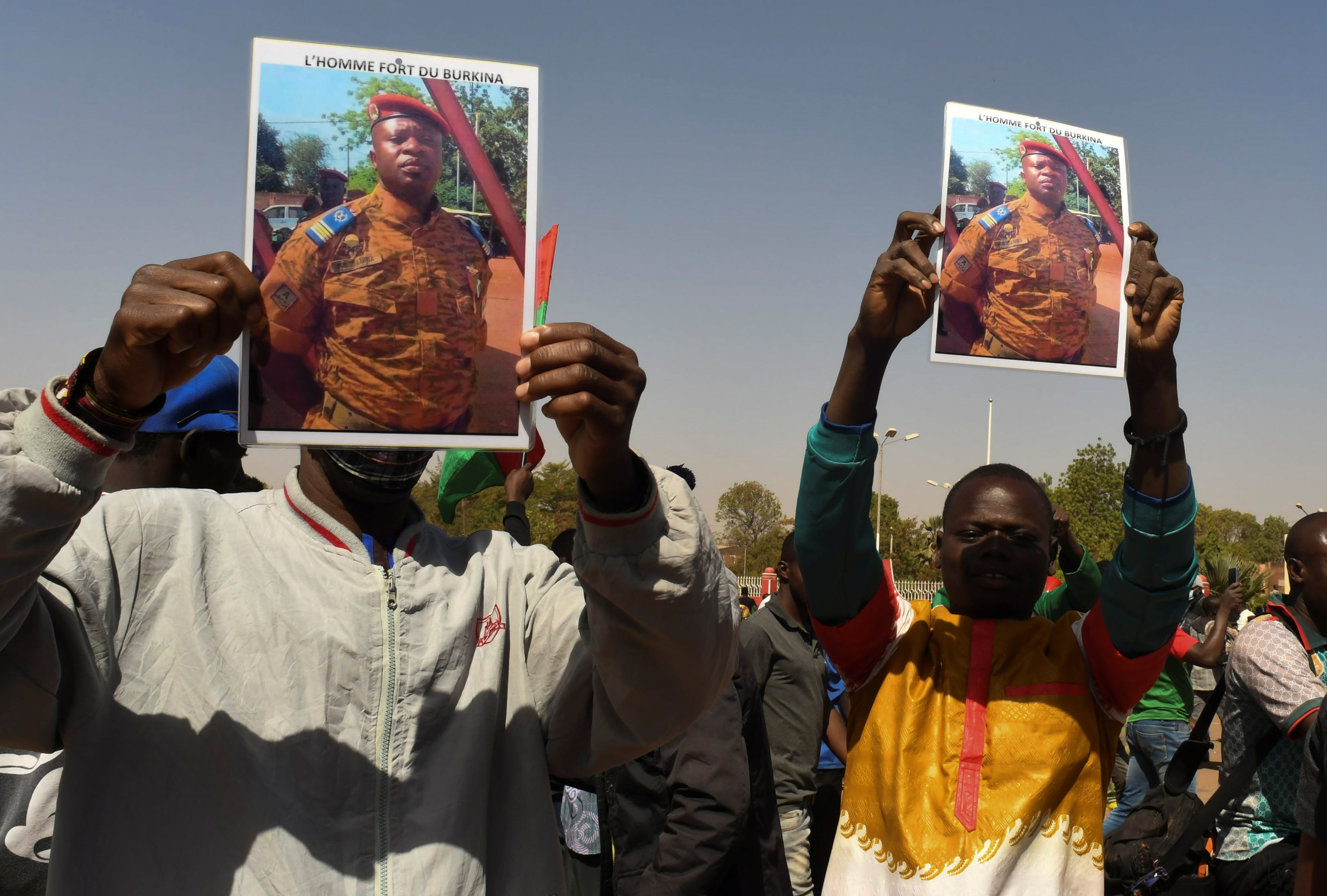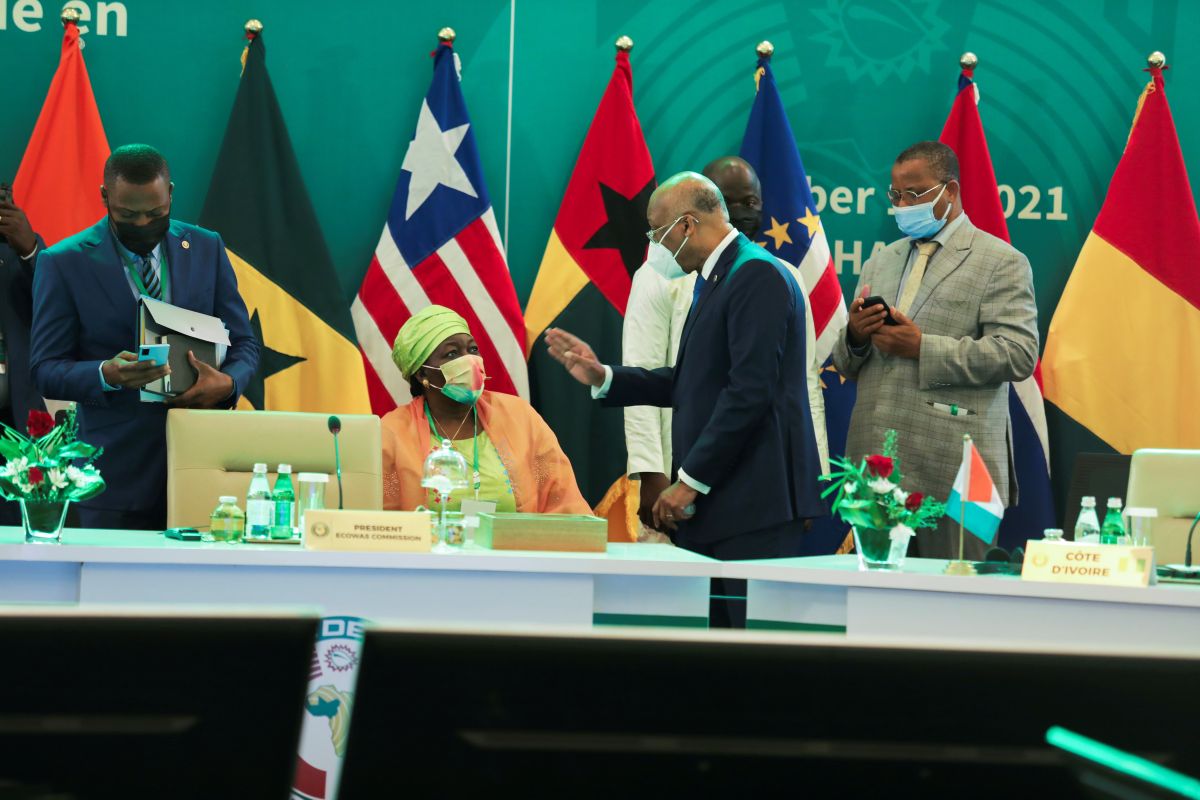Military Coup in Burkina Faso
On 24 January, the Burkina Faso military arrested President Roch Kaboré and seized state power. The coup was the result of frustration within the armed forces over the inability of the authorities to effectively fight the jihadists. The coup will complicate the conditions of international engagement, including the EU’s, in the Sahel.
 Fot. Reuters/ ANNE MIMAULT/ FORUM
Fot. Reuters/ ANNE MIMAULT/ FORUM
What was the cause of the upheaval?
The revolution that overthrew the Blaise Compaoré dictatorship in 2014 restored civil liberties. Kaboré won the following year’s first free presidential election in almost 40 years, however, he was unable to defeat jihadist groups linked to their Malian peers that have carried out attacks in Burkina Faso since 2015. Until today, around 2,000 people died in the country at the hands of extremists and almost 1.5 million were forced from their homes. According to Doctors Without Borders, the situation in Burkina Faso is the fastest-escalating humanitarian crisis in the world. Soldiers on the frontlines accused the generals and the authorities of disregarding the needs of the forces fighting the jihadists. In November last year, 53 people were killed in an attack on an ill-equipped gendarmerie station. The personnel had not been receiving food rations for two weeks. The event stirred public opinion and accelerated the conspiracy.
Who was involved in the coup?
The takeover was carried out by young officers of the special forces whose leader, Lt. Col. Paul-Henri Sandaogo Damiba, is respected in the army as an effective commander. Previously, he served in the presidential guard and then studied at French military academies (including École de Guerre and CNAM). In December last year, he became the commander of the most important 3rd Military Region (which includes the capital Ouagadougou). The coup was accompanied by demonstrations of support from the inhabitants who demanded security and from the ambivalent attitude of the influential civic movements that arose on the wave of the revolution of 2014.
What does the coup mean for the region and the world?
The coup follows a trend that began in Mali in 2020 and continued in Guinea in 2021 in which young, charismatic military men seized power on a wave of generational tensions and crises among traditional ruling elites. This raises concerns about a further domino effect in which officers in, for example, Niger or Ghana may harbour similar ambitions. To avoid it, the African Union and the regional organisation ECOWAS are pushing for states to give clear civil transition timelines. The coup complicates the position of France and the EU in the region. After the coup in Mali where the new authorities adopted an anti-French and more broadly, an anti-Western course, similar sentiments may develop in Burkina Faso. Last year, Burkina Faso residents blocked the transit of French troops to Mali. Centres associated with the Russian private military outfit the Wagner Group quickly offered their support to Lt. Col. Damiba.
How will the coup affect the presence of European forces in the region?
After Russian forces entered Mali, the future of the European Takuba taskforce deployed there is uncertain. The authorities dismissed the newly arrived Danish contingent and Polish forces may face similar problems. The centre of gravity of the international action against extremists in the region could shift to Niger and Burkina Faso. Lt. Col. Damiba, who is seeking recognition, may be willing to tighten cooperation with the Takuba mission to gain strength among personnel at the front, and the EU would counterbalance Russia’s ambitions and win influence over the restoration of the country’s civilian rule. This calculation may be thwarted by the influence of the anti-Western sentiments coming from Mali. International partners will step up support for Niger, the last civilian-ruled Sahel state where jihadists are also active. The EU and the U.S. should press for renewal of civilian powers in Burkina Faso and Mali based on solutions developed by Niger, which strengthened its resilience to extremist pressure.





